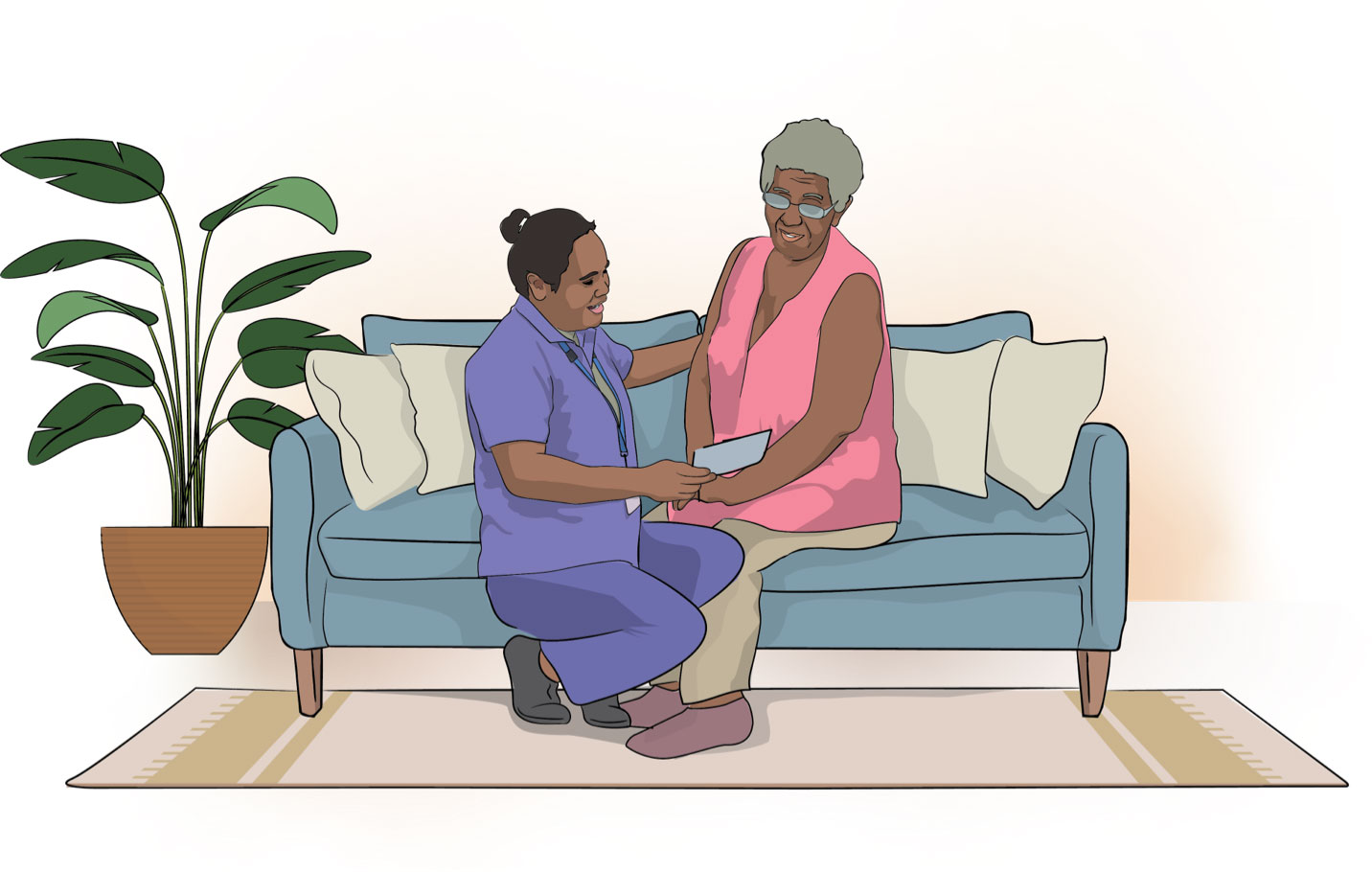What does palliative care do?
Palliative care looks after lots of different needs that people with cancer might have. Palliative care can help manage pain, symptoms of being sick and side effects of treatment. Palliative care can also help with worries, fears and other feelings. It can help manage relationships that are under stress because of the cancer, looking after money, making plans and keeping a strong spirit.
Where does palliative care happen?
Palliative care can happen on Country, at home, in hospitals, aged care centres and special palliative care centres.
People from towns and some regional areas might not be able to get palliative care near home and might have to travel to a city. If being on Country or with family while having palliative care is important to you, yarn with your doctor, nurse or Aboriginal and/or Torres Strait Islander health worker.
Who gives palliative care?
Palliative care is given by teams that have doctors, nurses and Aboriginal and/or Torres Strait Islander health workers. They might have a pharmacist to make sure you have the right medicine, social workers to help you make decisions and arrange what you need, and counsellors to talk to. Palliative care teams can ask for help from people from your mob, church or other spiritual supporters. They can include Elders and traditional healers too.
How do I get palliative care?
If you want to get palliative care, ask your doctor, nurse, Aboriginal and/or Torres Strait Islander health worker. They’ll arrange for someone to talk to you about it.
If you have cancer, you can read more about palliative care here.
If someone you know has cancer, you can read more about palliative care here.


